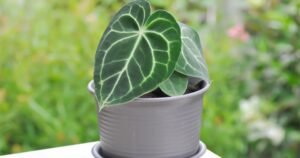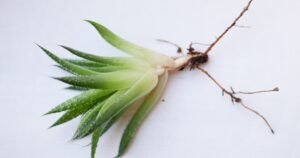We can keep pests out of vegetable gardens by watering our plants in the morning, harvesting at the right time, maintaining a clean garden, and covering crops using nets.
Here are some tips for keeping the insects away from vegetable gardens.
- Space out your plants.
- Encourage predators in your garden.
- Water your garden in the morning.
- Harvest at the right time.
- Maintain a clean garden.
- Use natural sprays.
- Manually hand-pick giant bugs.
- Cover crops using nets.
The persistent threat of garden pests can be a challenging obstacle to overcome. These unwanted intruders can cause substantial harm to your hard-earned produce.
In this comprehensive guide, we will explore a range of strategies to help you protect your vegetable garden from pests, ensuring a bountiful and pest-free harvest.
Here are some suggestions on how To Keep Pests Out of Vegetable Gardens.

Use Neem Oil to Repel Pests
- Neem oil is an organic and non-toxic alternative to chemical pesticides.
- It disrupts the life cycle of insects, making it difficult for pests to reproduce.
- To use neem oil in your vegetable garden, mix 1 tablespoon of pure neem oil with 1 teaspoon of dish soap and add it to one gallon of water.
- Use a sprayer to apply the mixture to your plants, covering all surfaces.
- Repeat every 7-10 days for best results.
Plant marigolds and other aromatic herbs
- Due to their intense scents, marigolds and other aromatic herbs such as lavender, thyme, and mint repel pests.
- Planting them around the perimeter of your vegetable garden can create a natural barrier against pests.
- You can also interplant these herbs with your vegetables for added protection.

Place sticky traps near plants
- Sticky traps can be an effective way to catch and control flying insects that are attracted to certain plants.
- Place them near plants prone to insect infestations, such as tomatoes or broccoli.
- Check the traps regularly and replace them when they become full.
Regularly inspect your garden for signs of insects
- One of the best ways to keep pests out of your vegetable garden is to catch them early before they become a significant problem.
- Make it a habit to regularly inspect your plants for any signs of insects or larvae. Look for chewed leaves, holes in the soil, or damaged fruits and vegetables.
- If you spot any pests, remove them by hand or use an organic insecticidal soap.

Kept in sealed containers
- Compost can attract various pests, mainly if it contains food scraps or other organic materials.
- To prevent these pests from entering your vegetable garden, ensure all compost is kept in sealed containers away from the main garden area.
- This will also help to eliminate any potential breeding grounds for insects.
Keep a pet cat or dog
- Small mammals such as rabbits, squirrels, and mice can also be a nuisance in vegetable gardens.
- Consider keeping a pet cat or dog to help keep these pests away from your garden.
- Their presence alone can often act as a deterrent.

Some Tips How To Keep Pests Out of Vegetable Garden
- Choose Pest-Resistant Plant Varieties
- A proactive approach to pest control in your vegetable garden is to select plant varieties that naturally resist common pests. Many plant species have been selectively bred to withstand specific insects or diseases.
- For example, tomatoes such as ‘Roma’ and ‘San Marzano’ exhibit lower susceptibility to hornworms and can endure attacks from cabbage worms.
- Prioritize researching and selecting plant varieties renowned for their resistance to prevalent pests in your area, thereby minimizing potential issues.
- Implement Crop Rotation
- Crop rotation is a technique involving the periodic relocation of your vegetable crops.
- This disrupts the life cycles of pests that often overwinter in the soil, reducing their populations.
- Create a systematic crop rotation plan, ensuring that plants from the same botanical family are not cultivated in the exact location for at least two to three years.
- Harness the Power of Companion Planting
- Companion planting is a strategic approach where specific plants are grown together to benefit one another mutually.
- Certain plants possess qualities that can pests through their fragrance or the chemicals they release.
- For example, interpolating aromatic herbs like basil or marigolds alongside your vegetables can effectively repel aphids, beetles, and nematodes.
- Some companion plants draw beneficial insects, such as ladybugs and parasitic wasps, which naturally prey on garden pests, providing an organic pest control solution.
- Employ Physical Barriers
- Physical barriers prove highly effective in keeping pests out of your vegetable garden.
- Options include row covers, netting, and fencing.
- Row covers crafted from lightweight fabric create a protective barrier that prevents flying insects like aphids, cabbage moths, and carrot flies from accessing your crops.
- The netting safeguards berries from birds and more giant insects, while fencing is a deterrent for more significant pests like deer and rabbits.
- Ensure these barriers are securely in place and adequately cover your plants for optimal effectiveness.
- Embrace Organic Pest Control
- Opting for organic pest control methods reduces reliance on chemical pesticides, which can harm the environment and beneficial insects.
- Natural remedies such as neem oil, diatomaceous earth, and garlic-based sprays can effectively deter and manage garden pests.
- Conduct Regular Inspections and Hand-Picking
- Routinely inspect your plants for signs of infestation, such as nibbled leaves or discolored spots.
- Swiftly remove affected areas by hand-picking or pruning to control minor pest populations.
- Properly dispose of the collected pests to prevent their return to your garden.
- Maintain Excellent Garden Hygiene
- A clean and orderly garden significantly reduces the risk of pest infestations.
- Eliminate weeds, fallen leaves, and plant debris where pests may hide or lay eggs.
- Ensure the proper disposal of these materials to eradicate potential breeding sites.
- Regularly clean your gardening tools to prevent the spread of diseases and avoid excessive fertilization, as luxuriant growth can attract pests.
Conclusion
How To Keep Pests Out of Vegetable Garden? Using natural methods such as neem oil and companion planting, regularly inspecting your garden, and keeping potential pest attractants away, you can effectively keep pests out of your vegetable garden without using harmful chemicals. With a little effort and vigilance, you can enjoy a bountiful harvest of healthy, pest-free vegetables all season. So don’t let pests ruin your hard work; follow these tips to keep them at bay.
Securing your vegetable garden against pests necessitates preventive actions and proactive strategies. By selecting pest-resistant plant varieties, implementing crop rotation, practicing companion planting, utilizing physical barriers, and favoring organic pest control methods, you can maintain a thriving garden and enjoy an abundant harvest, all while minimizing the need for chemical pesticides.
FAQs
What is the best insect repellent for a garden?
Regarding the best insect repellent for your garden, consider Neem oil a top choice.
Neem oil is highly effective at deterring various pests while being environmentally friendly and safe for beneficial insects.
What can I use to keep pests away?
To effectively deter pests, you can employ a dual approach: utilize natural solutions like neem oil, implement preventive measures such as maintaining a clean garden space, and practice companion planting with pest-repelling plants like marigolds and basil.
These tactics work together to create an environment that wards off unwanted garden pests.
What is neem oil, and how does it repel pests?
Neem oil is an organic, non-toxic alternative to chemical pesticides.
It disrupts the life cycle of insects, making it difficult for them to reproduce.
Can I use neem oil on all types of vegetables?
Yes, neem oil can be used on all vegetables, plants, and trees.
How often should I apply neem oil to my vegetable garden?
For best results, it is recommended to apply neem oil every 7-10 days.
Are there any potential risks associated with using neem oil?
Neem oil is generally safe for vegetable gardens, but it is always important to carefully follow the instructions and dilute it properly.
It is also recommended to wear gloves and protective eyewear when handling neem oil.











